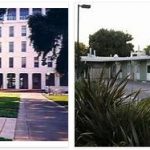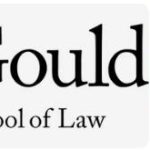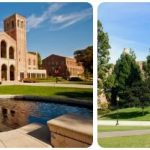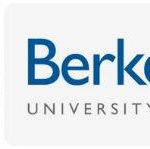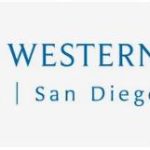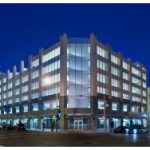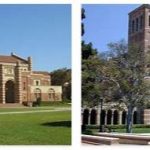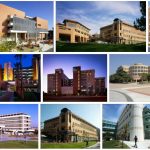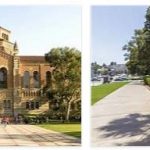The University of California–Davis School of Law was founded in 1968 and is located in Davis, California. It has a long history of providing legal education to students from all backgrounds and levels of experience. The school was initially established as the Martin Luther King, Jr. School of Law, making it the first public law school in the United States to be named after an African-American leader. The school has since grown to become one of the top-ranked law schools in the country, consistently ranked among the top 25 by U.S. News & World Report. The school offers a wide range of courses and degree programs including a Juris Doctor degree, joint degrees with other departments on campus, an LLM program for foreign lawyers, a masters program in public policy, and specialized certificates in areas such as business law and environmental law. In addition to its academic offerings, UC Davis School of Law also provides students with numerous opportunities for professional development through clinics, externships and internships at local businesses and government agencies.
University of California–Davis School of Law is located in the state of California. As one of the leading law programs, University of California–Davis School of Law has a high average LSAT score of 160-165 when recruiting new students. As a return, the median starting salary for law graduates reaches $152,500 per year. See the following table for detailed admissions information and career profiles of University of California–Davis School of Law.
Admissions: University of California–Davis
The University of California–Davis School of Law is one of the top law schools in the country. The school boasts a competitive admissions process, with an acceptance rate of just 33.2%. In 2020, the school received 4,845 applications and accepted 1,608 students. Of those admitted, 52% were female and 48% were male. Additionally, 35% identified as students of color and 9% identified as international students. The mean LSAT score for admitted students was 162 and the median GPA was 3.72. The University of California–Davis School of Law also offers a variety of scholarships to its incoming class that range from full-tuition to partial tuition awards. These scholarships are awarded based on academic merit or financial need and are renewable for up to three years. As part of their commitment to access and diversity, the school also offers several need-based grants that help offset the cost of tuition for qualified applicants who demonstrate financial need.
| Fall 2019 Admissions and Enrollment Statistics | |
|---|---|
| Total number of full- and part-time applicants | 3,189 |
| Total number of full- and part-time acceptances | 1,026 |
| Overall acceptance rate | 32.2% |
| Total number of full- and part-time first-year students enrolled | 213 |
| Number of full-time program applicants | 3,189 |
| Number of full-time program acceptances | 1,026 |
| Full-time acceptance rate | 32.2% |
| Number of first-year full-time students enrolled | 213 |
| Number of part-time program applicants | 0 |
| Number of part-time program acceptances | 0 |
| Part-time acceptance rate | N/A |
| Number of first-year part-time students enrolled | 0 |
| Fall 2019 GPA and LSAT Scores | |
| 25th-75th percentile GPA scores for all students | 3.23-3.72 |
| 25th-75th percentile LSAT scores for all students | 160-165 |
| 25th-75th percentile undergraduate GPA for full-time students | 3.23-3.72 |
| 25th-75th percentile LSAT scores for full-time students | 160-165 |
| 25th-75th percentile undergraduate GPA for part-time students | N/A |
| 25th-75th percentile LSAT scores for part-time students | N/A |
Careers: University of California–Davis
| Bar Statistics (Winter and Summer 2018 administrations) | |
|---|---|
| State where the greatest number of first-time test takers took the bar | CA |
| School’s bar passage rate for first-time test takers | 79.9% |
| Statewide bar passage rate for first-time test takers | 70.7% |
| Class of 2018 Graduates | |
| Total graduates | 189 |
| Graduates employed at graduation | 97.3% |
| Graduates known to be employed nine months after graduation | 98.1% |
| Starting Salaries of 2018 Graduates Employed Full-time | |
| 25th percentile private sector starting salary | $85,000 |
| Median private sector starting salary | $152,500 |
| 75th percentile private sector starting salary | $160,000 |
| Percent in the private sector who reported salary information | 52% |
| Median public service starting salary | $54,494 |
| Areas of Legal Practice (Class of 2018) | |
| Percent employed in academia | 3.0% |
| Percent employed in business and industry | 7.0% |
| Percent employed in government | 11.0% |
| Percent employed in all judicial clerkships | 7.0% |
| Percent employed in law firms | 53.0% |
| Percent employed in public interest | 12.0% |
| Percent employed in an unknown field | 7.0% |
| Percent employed in a judicial clerkship by an Article III federal judge | 3.0% |
| 2018 Graduates Employment Location | |
| Graduates employed in-state | 87% |
| Graduates employed in foreign countries | 0% |
| Number of states where graduates are employed | 12 |
| New England (CT, ME, MA, NH, RI, VT) | 1.0% |
| Middle Atlantic (NY, NJ, PA) | 0.0% |
| East North Central (IL, IN, MI, OH, WI) | 1.0% |
| West North Central (IA, KS, MN, MO, NE, ND, SD) | 0.0% |
| South Atlantic (DE, DC, FL, GA, MD, NC, SC, VA, WV) | 3.0% |
| East South Central (AL, KY, MS, TN) | 0.0% |
| West South Central (AR, LA, OK, TX) | 1.0% |
| Pacific (AK, CA, HI, OR, WA) | 89.0% |
| Mountain (AZ, CO, ID, MT, NV, NM, UT, WY) | 3.0% |
| Employment location unknown | 2.0% |
| Career Services | |
| (Data appear as originally submitted by this school) | |
| Career services operations | Career Counselor assigned to each student. 4 Career Counselors (4 attorneys): Director (former legal headhunter); 1 general advising/clerkships; 1 public interest/public sector; 1 general advising/alumni. Public Service Law program/certificate. Panels, Training Sessions, Skills Workshops, Networking Opportunities. Career Resource library. See http://www.law.ucdavis.edu/careerServices/index.shtml |
| Job Type | |
| Bar admission required or anticipated (e.g., attorney and corporate counsel positions, law clerks, judicial clerks) | 81.0% |
| J.D. preferred, law degree enhances position (e.g., corporate contracts administrator, alternative dispute resolution specialist, government regulatory analyst, FBI special agent) | 13.0% |
| Professional/other (jobs that require professional skills or training but for which a J.D. is neither preferred nor particularly applicable; e.g., accountant, teacher, business manager, nurse) | 3.0% |
| Nonprofessional/other (job that does not require any professional skills or training or is taken on a temporary basis and not viewed as part of a career path) | 2.0% |

